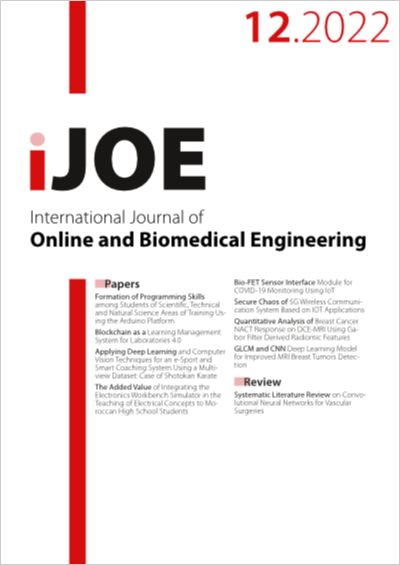Formation of Programming Skills among Students of Scientific, Technical and Natural Science Areas of Training Using the Arduino Platform
DOI:
https://doi.org/10.3991/ijoe.v18i12.32409Keywords:
programming training, computer science, information technology, radio electronics, Arduino platform, microcontroller systems, C programming languageAbstract
The problem of improving the educational process of students of scientific, technical and natural science areas of training is one of the relevant aspects of modern pedagogical research. During training, it is necessary to apply new approaches, educational technologies and techniques in order to prepare graduates who are able to independently solve complex scientific, technical and engineering design tasks in the process of modern production. Programming is a universal tool for modeling objects and processes, as well as a powerful tool in developing the thinking of students of scientific, technical and natural science fields of training. The article discusses the issues of formation of programming skills of students based on the use of the Arduino platform. The professional standards are analyzed, the main contradictions of the existing system of training future bachelors in the field of radio electronics and control systems are revealed. The method of organizing effective programming training based on the use of the Arduino platform is presented. The criteria and indicators of the levels of competence formation are given. The results of an experiment on the implementation of the described methodology of teaching programming on the basis of the I.N. Ulyanov Chuvash State University are shown. Using the chi-square criterion, statistical processing of the results of a pedagogical experiment was performed, which convincingly proves that when using the Arduino platform, most students have reached high and advanced levels of programming skills formation.
Downloads
Published
How to Cite
Issue
Section
License
Copyright (c) 2022 Viliam Ďuriš, Lidia N. Vasileva, Sergey G. Chumarov, Tomáš Lengyelfalusy

This work is licensed under a Creative Commons Attribution 4.0 International License.



